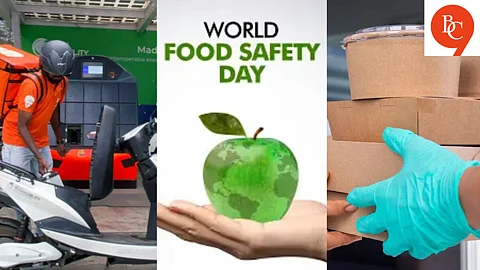

This theme underscores the vital role of scientific knowledge in reducing foodborne illnesses, cutting costs, and saving lives. In India, this theme resonates deeply as the food delivery culture continues to evolve, emphasizing hygiene and safety to meet global standards.
The Rise of Food Delivery in India
India's food delivery sector has experienced exponential growth, driven by urbanization, changing lifestyles, and technological advancements.
Platforms like Swiggy, Zomato, and Zepto have become household names, offering convenience and variety at the click of a button. However, this surge has also brought to light concerns regarding food safety and hygiene.
Regulatory Measures and Industry Initiatives
To address these concerns, the Food Safety and Standards Authority of India (FSSAI) has implemented several initiatives:
Mandatory Hygiene Ratings: All restaurants listed on online food delivery platforms must now display hygiene ratings based on cleanliness, food handling, and sanitation practices.
Training and Certification: FSSAI mandates that food handlers, including delivery personnel, undergo training and certification to ensure adherence to food safety practices.
Packaging and Labelling Guidelines: Strict guidelines have been established for food packaging and labelling, ensuring that consumers receive accurate information about ingredients, allergens, and nutritional content.
Shelf-Life Requirements: Products delivered must have at least 30% of their shelf life remaining, or a minimum of 45 days before expiry, at the time of delivery.
Technological Interventions
Technology plays a crucial role in enhancing food safety:
Blockchain Technology: Implementing blockchain allows stakeholders to track every step of the food supply chain, making it easier to identify the source of contamination in case of outbreaks and enabling swift recalls.
Artificial Intelligence (AI): AI-powered systems are being used to predict potential hazards, optimize food processing techniques, and identify microbial contamination more accurately and efficiently.
Mobile Applications: Consumer-friendly apps enable users to check the food safety compliance and hygiene ratings of restaurants and food businesses, empowering them to make informed choices.
As India continues to embrace the convenience of food delivery, it is imperative that all stakeholders—regulatory bodies, food businesses, and consumers—collaborate to uphold and enhance food safety standards.
